- Last Updated: February 16th, 2026
Key Takeaways
Excessive use of social media platforms is associated with negative mental health effects, including poor sleep, low self-esteem, and increased risk of mood disorders and anxiety.
Taking a break from social media can lead to various mental health benefits, such as improved sleep, reduced body image issues, enhanced self-esteem, and decreased feelings of depression and anxiety.
Social media addiction can have detrimental effects on academic performance, real-life interactions, and overall well-being, highlighting the need for moderation and awareness of social media use.
Addiction to Social Media Platforms Tied to Negative Mental Health Effects
How often do you check your social media apps?
If you check them multiple times throughout the day, you could have an addiction — to social media.
You’re not alone.
In the United States, roughly 82% of the population uses various social media platforms and apps.
Based on this data from Statista, social media use has increased eightfold since 2008.
Many of these users confessed to being addicted to social media use.
Because of their addiction to social media, many of them experienced the negative mental health effects that excessive social media exposure may confer.
Problems like poor sleep, low self-esteem, and even suicidal ideation plague frequent users of social media platforms like Facebook, Instagram, and TikTok.
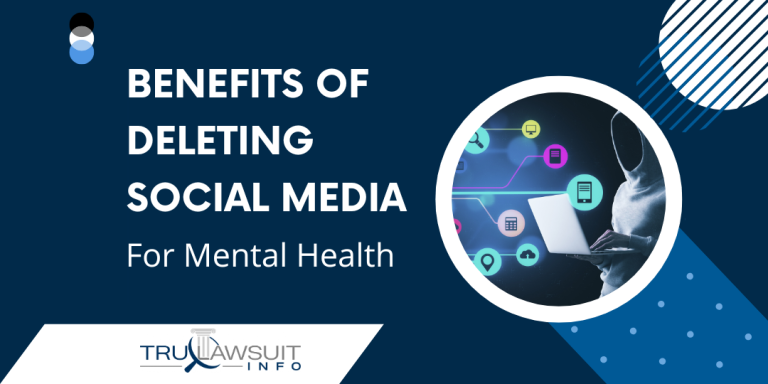
Are you experiencing these negative effects that go along with social media addiction?
There’s a solution — deleting social media for mental health.
By taking a break from using social media, you’ll notice better sleep, social connectedness, and focus, among many other health benefits.
Learn more about the mental health benefits of reducing and eliminating social media use.
Also, stick around to the end to learn the best practices to implement once you go on your social media cleanse.
An Overview of Social Media Addiction
Social media addiction is a psychological condition characterized by excessive social media use and exposure.
People addicted to social media will often report a compulsion to check their social media apps and accounts for posts about a specific subject matter.
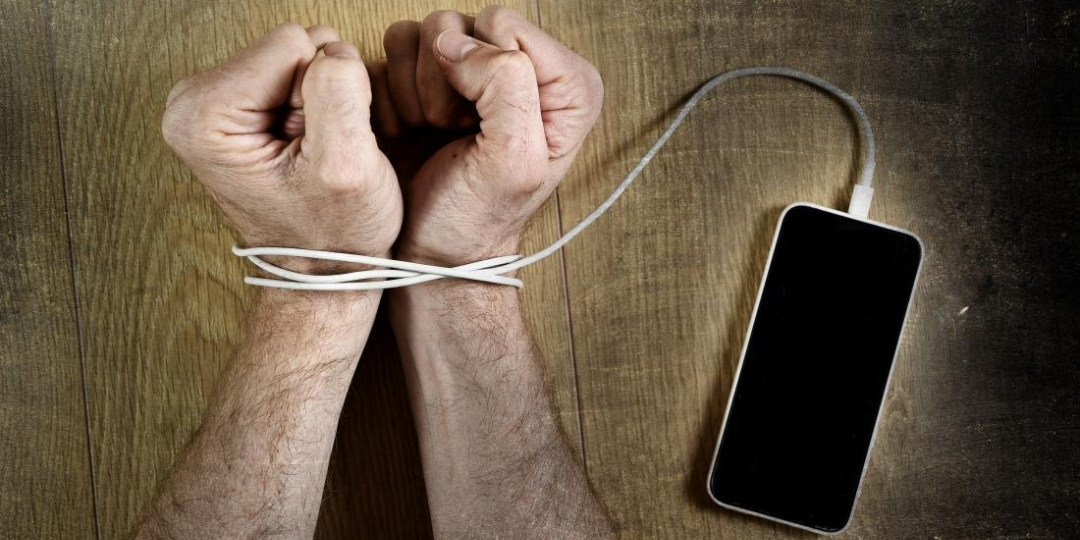
Many will log into their social media accounts to find the latest news or content.
While the occasional consumption of news isn’t pathological or unhealthy, other reasons for constantly checking social media indicate a need for intervention.
The Relationships Between Social Media and Mental Health Based on Peer-reviewed Studies
Users who scroll endlessly and aimlessly may find themselves on their social media accounts for hours on end.
When left uncontrolled, social media use turns into unhealthy social media habits that can lead to a variety of mental health problems.
Science confirms this.
A comparative study in 2018 highlighted the impact social media use had on 1,870 pre-university students.
In the study, the researchers discovered that those who admitted to using social media excessively experienced several issues.
More than half (56.6%) reported anger and sleep disturbances resulting from their use of their social media apps.
According to one study in 2019, social media usage had a negative association with the mental health and academic performance of college students.
The college students who participated in the study used various social media platforms like TikTok for hours every day and reported several mental health issues.
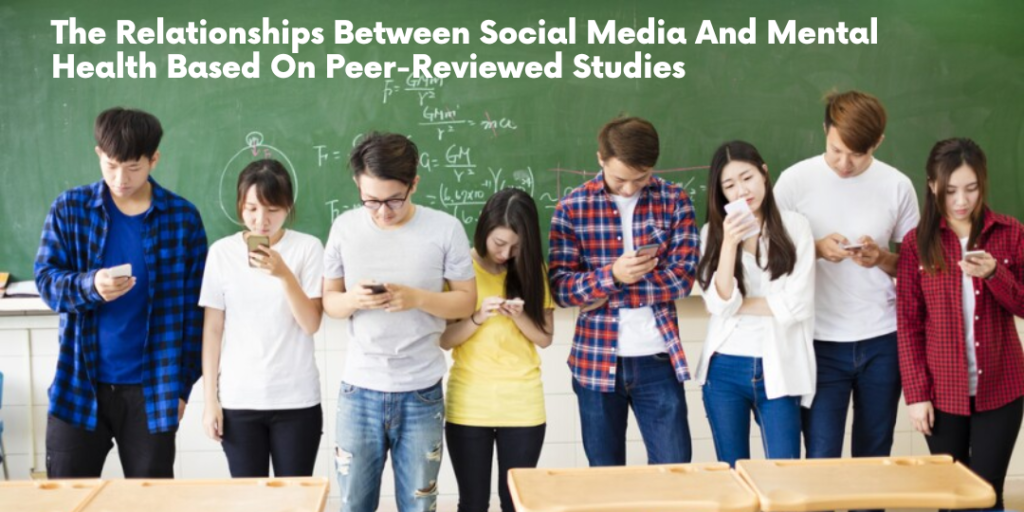
Many reported a decline in their academic performance.
Perhaps the most striking finding of the study was the effect social media use had on the self-esteem of many of the participants.
More research suggests the link between mental illness and excessive social media exposure among young adults and adolescents.
In 2022, a bibliographic study reviewed social media addiction studies published between 2013 and 2022.
Nearly all the studies reviewed discovered that social media use led to various mood disorders, social anxiety, and detachment from real life among users.
In short, the link between mental health problems and social media usage is undeniable.
The more often a person uses social media, the more social media becomes a threat to mental and emotional well-being.
How To Identify Social Media Addiction
Being on your social media accounts at certain times isn’t always a sign of addiction.
However, any significant increase in the frequency and time you spend on social media sites may indicate social media addiction.
Besides increased frequency, people with social media addiction will display the following signs:
- An increased obsession with other people’s lives on social media
- Endless scrolling
- Using social media when you need to do other things
- An increase in mobile phone use
- An inability to fall asleep
- Reduced interactions with friends and family members
- Excess emotionality after reading certain social media posts
If left unattended, these behaviors may exacerbate symptoms of existing mental health problems.
At their worst, these habits turn into other behavioral and psychological problems like excessively seeking external validation.
Other social media users will also develop body image issues as a result of seeing influencers online.
If you notice these symptoms, it may be time for you to take a break from social media.
The Benefits of Deleting Social Media for Mental Health as Shown by Various Peer-reviewed Studies
It’s growing increasingly clear that excessive social media usage leads to an increased risk of developing mental illness.
With that in mind, you can improve your well-being by taking a social media break.
Think of a social media break as a period where you limit or avoid using social media applications or sites.
On such a break, you may still use your smartphone.
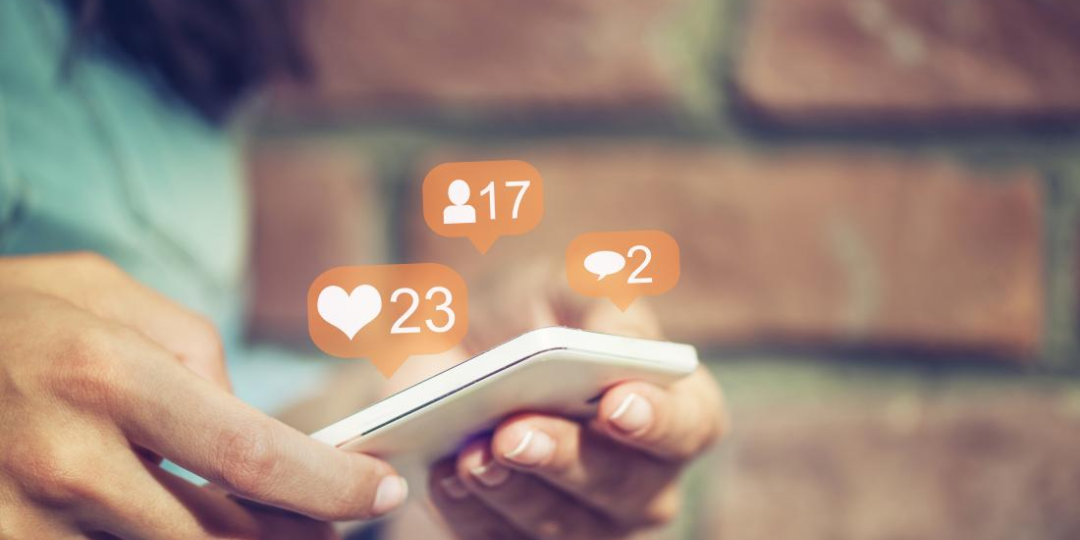
However, you shouldn’t use it to browse Facebook, Twitter, Instagram, TikTok, or any similar sites.
After your social media break, you can decide whether you should continue disconnecting or take a more disciplined approach to checking out Facebook posts or Instagram Stories.
The benefits of a social media break are too numerous to mention.
Here are the ones confirmed by peer-reviewed research.
Improved Sleep Due to Reduced Screen Time
One of the first improvements in well-being experienced from a social media break is better sleep.
There are many anecdotal accounts of people getting better sleep from just limiting or avoiding sites like Facebook, Twitter, and Instagram.
However, there is existing literature to back these claims too.
A 2021 study found that disconnecting from social media led to improved sleep quality in 132 individuals.
The participants of the study noticed improvements in their sleep after just a week of not using Facebook and Snapchat.
In short, it doesn’t take long to experience the benefits of the detox.
Reduced Body Image Issues
There’s a correlation between excessive social media consumption and body image.
Using social media excessively has been shown to negatively impact a person’s body image.
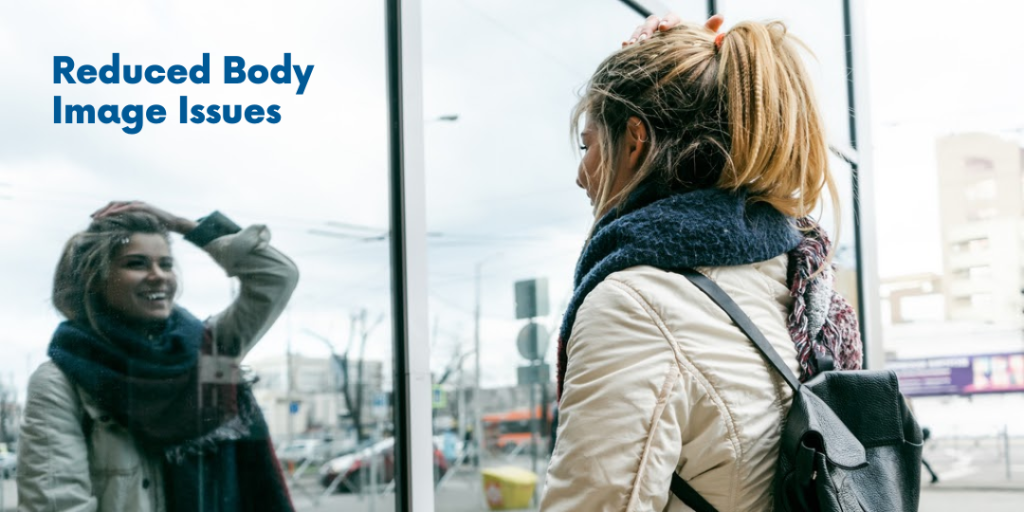
A break would do wonders if you’re struggling with body image issues, and there’s concrete data to prove this.
Early in 2023, the American Psychological Association published a study about taking social media breaks and improving body image issues.
The study involved adolescent participants who were told to avoid social media applications and sites.
In just weeks, the participants reported a significant improvement in their body image.
Most people in the study who struggled with eating disorders also reported less frequent urges to binge or induce vomiting after taking a break from Facebook and Instagram.
Improved Self-esteem
One phenomenon in social media is the FOMO (fear of missing out) effect.
It’s a phenomenon where a person obsessively emulates a social media influencer.
Also, the person does so under the impression that the influencer lives a more desirable life.
FOMO can create the illusion that a person lives an unhappy and unfulfilled life.
As a result, individuals with FOMO develop self-esteem issues due to the pressure placed by social media.
What does this mean for you?
It means that if you want to feel good about yourself, you can start by limiting your exposure to social media.
Depression Prevention
Depression is one of the most common effects of prolonged social media use.
It occurs when users become overwhelmed by various social media posts or comments.
Posts containing bad news, as well as negative comments, become triggers for social media users.
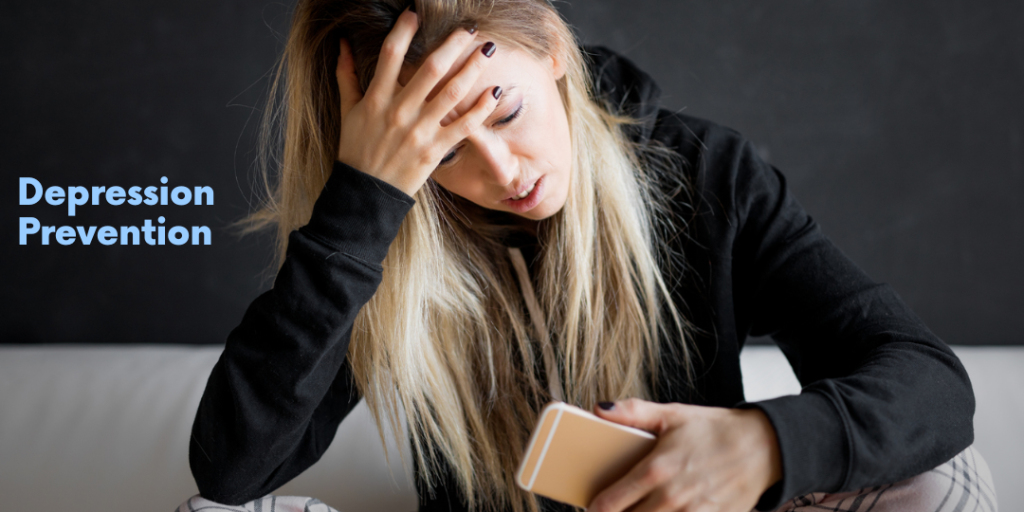
Over time, repeated exposure to these triggers create feelings of helplessness and unworthiness — the two hallmarks of depression.
By taking a break from using sites like Facebook, Instagram, Twitter, and TikTok, people can prevent depression.
Also, recent research suggests that those already diagnosed with depression will find their moods improve from taking a sabbatical from social media.
Reduced Feelings of Anxiety or Psychological Stress
Taking a break from using social media not only prevents and keeps depression at bay.
Doing so is also helpful for managing anxiety and psychological stress.
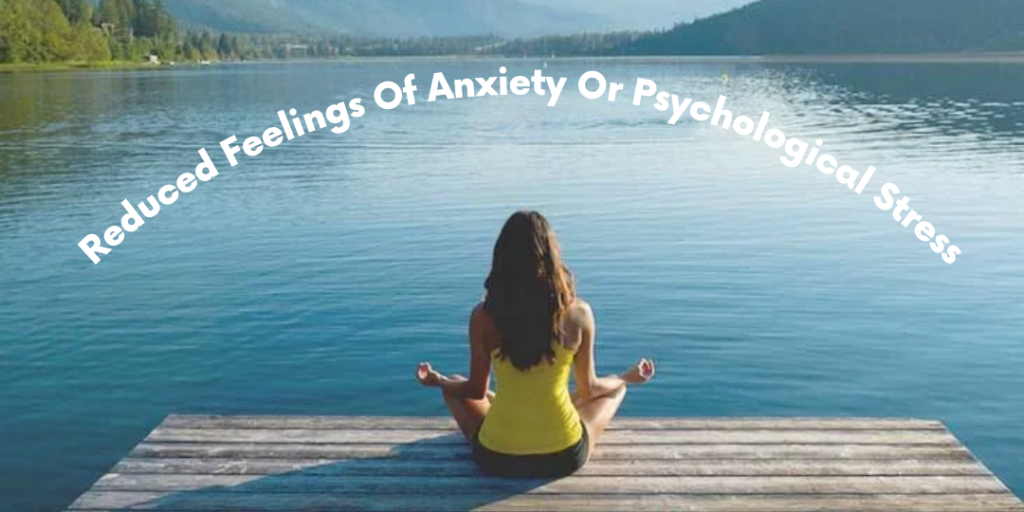
This was found in a randomized control trial published in 2021.
The trial involved 154 participants. All were confessed addicts to social media and struggled with general anxiety.
Throughout the study, the participants had to cease all social media use.
The results were astounding.
In just weeks, the participants reported feeling less anxiety and an improved sense of well-being.
The researchers attributed the improvements in psychological and emotional states to reduced exposure to triggering posts and content.
The sleep improvements from social media cessation also contributed to the improved sense of wellness among the study’s participants.
The findings of the study are just one example of research confirming the benefits of social media breaks.
However, the life-improving benefits of disconnecting don’t stop there.
Taking a break will limit the overstimulation from posts, negative news, hateful comments, and unrealistic expectations, breaks also improve one’s focus and mindfulness.
This brings us to the next benefit of taking a break from social media.
Improved Focus
When you’ve habitually used social media and for a long time, you realize how little focus you might have as you scroll from one reel or story to the next.
Indeed, many who have developed an addiction to Facebook, Twitter, and Instagram report difficulties in concentrating as a result of their social media habits.
One 2019 study found that social media use has shortened the attention spans of people.
If you’re having a challenging time concentrating on other things, it may be time to improve your focus and mindfulness by unplugging.
By doing so, you’ll regain your ability to concentrate on tasks and be more present when you’re around close friends and family members.
An Improved Sense of Social Connectedness
Ironically, social media connects people and isolates them at the same time.
In particular, people who have developed a social media addiction tend to spend less time with close friends and family.
Even during gatherings, people addicted to social media would rather see the latest post than be mentally and emotionally present.
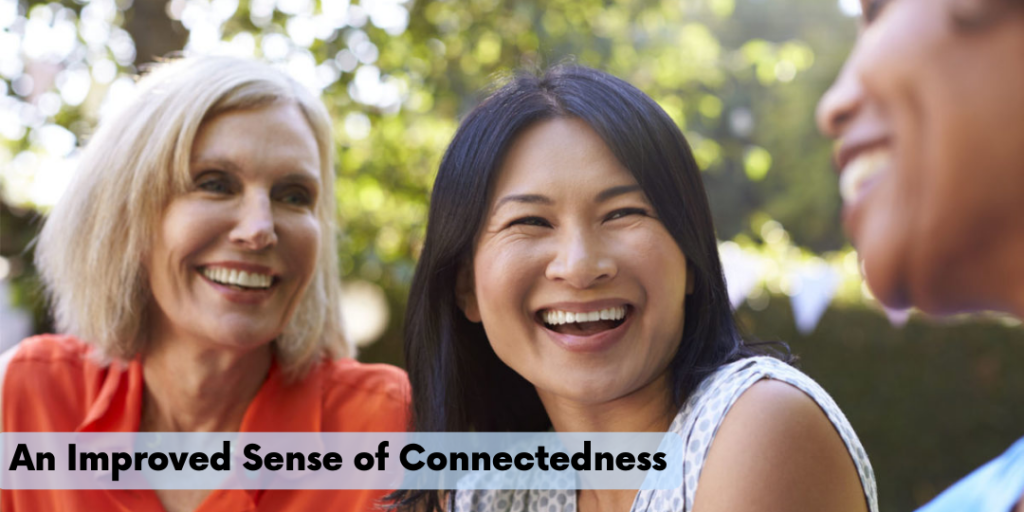
This can take a toll on a person’s feelings of connection — especially when the person doesn’t have access to their phone or social media accounts.
Because of excessive social media use, a person may have lost connection to real life and the real world.
A good way to restore one’s sense of connectedness is to unplug from social media altogether.
By restricting your access to your accounts or apps, you’ll connect better with your friends and family.
As a result, you’ll be feeling more connected to the people around you instead of people on social media.
Practical Tips for When You Take a Break From Social Media
By now, you may have decided that it may be time for a social media break.
However, before you disconnect, here are some positive practices to implement.
Inform Friends and Family About the Break
First, let friends and family online know about your social media break.
Inform them that you’re doing it as a way to improve your mental health.
If you’ve decided to eliminate social media from your lifestyle for good, inform your family and friends of your decision.
Look for Activities or Tasks To Replace Social Media
Of course, ceasing any activity you’ve been accustomed to will be challenging at first.
For this reason, it’s essential to find activities that will keep your mind (and hands) preoccupied during the first days or weeks of your break.
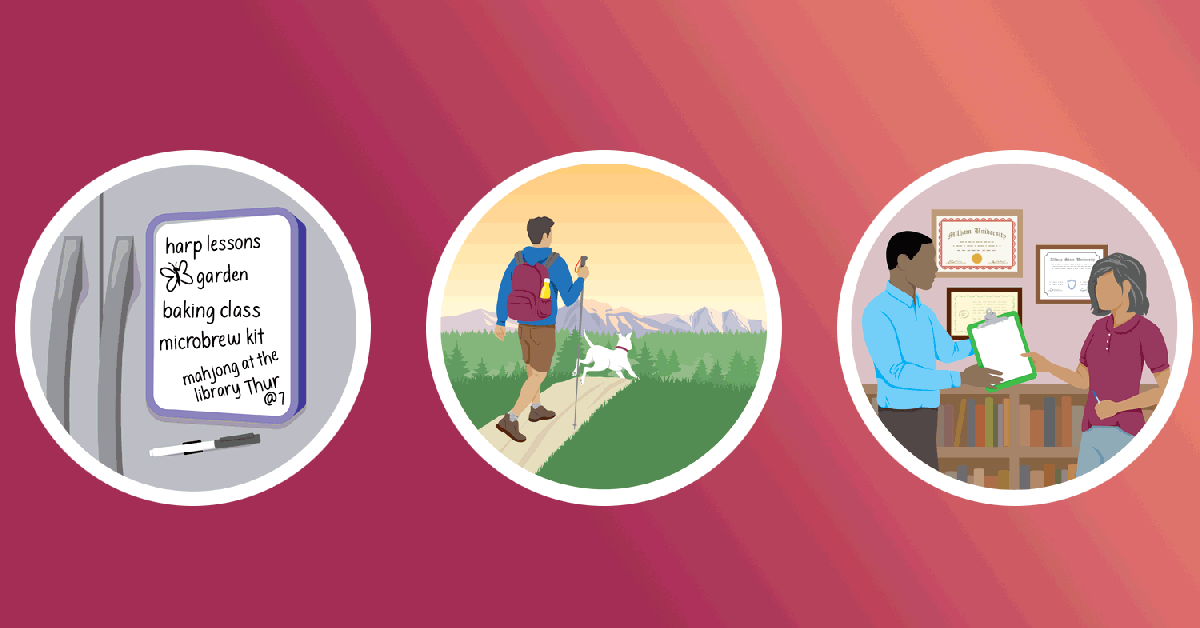
You can take up new hobbies or learn new skills.
You could even pick up a sport or two.
Find Other Ways To Keep in Touch
There are other ways to keep in touch besides Facebook or Instagram Messenger.
You can use your email address.
Before your break, give your contact details to friends and family, so they can get a hold of you while you’re on your social media break.
Decide on the Length of the Social Media Break
How long will you be away from Twitter, Facebook, or Instagram?
Will you be gone for a week?

Maybe you’ll be off for a month or two.
Knowing the duration of your break will give you an idea of what to tell your friends and family.
Most importantly, a fixed duration gives you a measurable timeline to track how your break affects you.
Most studies suggest that a week suffices for you to experience immediate mental health benefits.
Unplug and Take Back Your Mental Health
Getting off social media may just be the lifestyle change that your mental health and well-being need.
By taking a break or deleting social media completely, you’ll experience better sleep, emotional stability, and improved self-esteem.
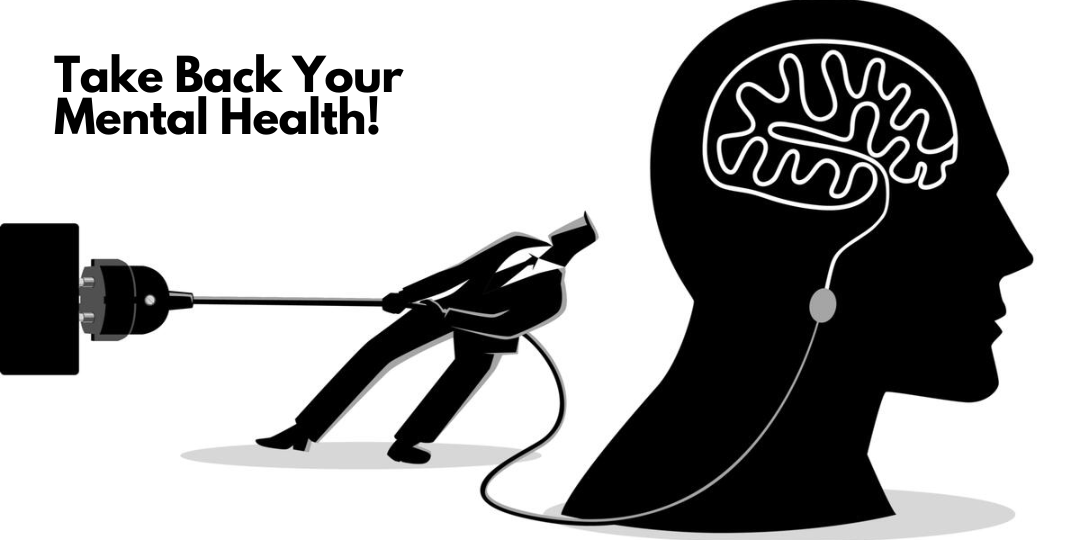
Unplug and take back your mental health.
While you’re at it, contact us to learn more about social media’s effect on mental health and what you can do to hold negligent social media companies responsible.

Attorney Jessie Paluch, founder of TruLawsuit Info, has over 25 years of experience as a personal injury and mass tort attorney, and previously worked as an international tax attorney at Deloitte. Jessie collaborates with attorneys nationwide — enabling her to share reliable, up-to-date legal information with our readers.
Legally Reviewed
This article has been written and reviewed for legal accuracy and clarity by the team of writers and legal experts at TruLawsuit Info and is as accurate as possible. This content should not be taken as legal advice from an attorney. If you would like to learn more about our owner and experienced injury lawyer, Jessie Paluch, you can do so here.
Fact-Checked
TruLawsuit Info does everything possible to make sure the information in this article is up to date and accurate. If you need specific legal advice about your case, contact our team by using the chat on the bottom of this page. This article should not be taken as advice from an attorney.
You can learn more about the Social Media Harm Lawsuit by visiting any of our pages listed below:
Here, at Tru Lawsuit Info, we’re committed to helping victims get the justice they deserve.
To do this, we actively work to connect them with attorneys who are experts in litigating cases similar to theirs.
Table of Contents
Tru Lawsuit Info is a reliable source of information about issues that may affect your health and safety, such as faulty products, data breaches, and environmental hazards.
Our team of experienced writers collaborates with medical professionals, lawyers, and advocates to produce informative articles, guides, and other resources that raise awareness of these topics.
Our thorough research provides consumers with access to reliable information and updates on lawsuits happening around the country. We also can connect consumers with attorneys if they need assistance.
Here, at Tru Lawsuit Info, we’re committed to helping victims get the justice they deserve.
To do this, we actively work to connect them with attorneys who are experts in litigating cases similar to theirs.
